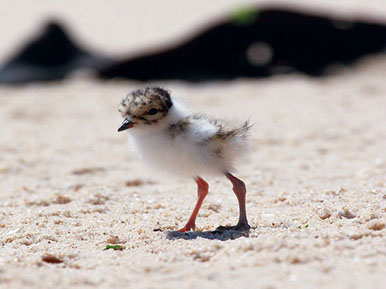DOGS may be banned from Mornington Peninsula National Park, bringing it into line with nearly all other national parks in Australia.
Parks Victoria is seeking community feedback before deciding whether to ban dogs from the park, which covers the beaches and foreshore from Portsea to Bushrangers Bay and inland along Main Creek to Greens Bush at Main Ridge.
Chief ranger Libby Jude said there had been “numerous reports of dog attacks and threats to local wildlife”.
“There are 32 fauna species listed as endangered, vulnerable or near threatened living in the Mornington Peninsula National Park and we need to protect them,” she said.
Rye birdwatcher Malcolm Brown said the ban was long overdue.
“It should have happened 20 years ago; dogs should never have been allowed in the first place,” he said.
“Giving the public a say is ridiculous, they [Parks] should just follow the National Parks Act and ban dogs altogether. The clear objectives of the Act are that native flora and fauna are protected in national parks.”
He said incompetence in the department had allowed the national park to fail that objective on several counts, particularly with regard to the endangered hooded plover.
“It is the worst park in the state for protection of the hooded plover,” Mr Brown said.
The small bird breeds on ocean beaches between August and March and is considered “vulnerable” in Victoria where the total population is about 550 birds. Of these, about 70 breed on Mornington Peninsula ocean beaches.
According to community group Friends of the Hooded Plover, which monitors bird numbers, of 137 eggs laid on peninsula beaches last season, only 27 hatched and just three chicks survived to adulthood – a failure rate of 98 per cent.
Grainne Maguire of Birdlife Australia said dogs allowed off-leash on national park beaches were a significant threat to the bird.
“Dogs tip the balance in an area that’s already under stress; Mornington Peninsula National Park is one of the most sensitive areas in Australia for the hooded plover,” she said.
She supported a ban on dogs because other efforts had failed. About 97 per cent of people taking dogs into the park allowed them to roam off-leash.
“All our education efforts have drawn a blank,” she said, a point reiterated by Parks.
“The evidence shows that despite ongoing efforts by rangers to educate dog walkers and enforce the regulations, there continues to be very high levels of non-compliance with the 9am limit and on-leash rules” Ms Jude said.
At present, dogs are permitted on a leash between sunrise and 9am daily in much of the park, except Greens Bush and the coastal area around Cape Schanck and Bushrangers Bay.
Hooded plovers nest in sand dunes and feed at the water’s edge. Their nests can be upset by people and dogs, the chicks and eggs are eaten by dogs and the tiny chicks, which are flightless until five weeks old, are vulnerable to stress and disturbances.
As their eggs and chicks perish, nesting pairs will keep breeding in an effort to produce viable offspring. Producing an average of three eggs each time, a female can lay up to 20 eggs a season and still have nothing to show at the end of it.
Ms Jude said options for Mornington Peninsula National Park included a seasonal ban for the whole park, restricting dogs to certain sites and adjacent beach areas, a seasonal ban in selected areas or a total ban for the whole park.
Other species under threat from dogs included the white-footed dunnart and the long-nosed bandicoot.
“There have also been recorded cases of wallabies being chased by dogs in the park, which in one instance resulted in the wallaby falling from a cliff and drowning,” she said.
Any change of regulations will unlikely benefit hooded plovers embarking on another fruitless nesting season. Submissions close on Friday 30 November, so a decision is unlikely before the end of the year.
For more information go to www.parks.vic.gov.au or phone 131 963.


